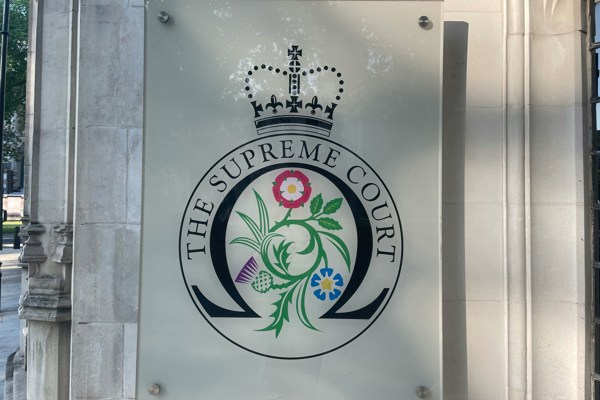Hot on the heels of last month’s Uber judgment, the Supreme Court decision in Royal Mencap Society v Tomlinson-Blake & Shannon v Rampersad and another (T/A Clifton House Residential Home) [2021] UKSC 8 was published on 19 March 2021.
Background
The central question before the Supreme Court in the case of Ms Tomlinson-Blake was whether all of a care worker’s shift at a vulnerable client’s premises (part of which involved remaining overnight at the client’s home and providing support when required and sleeping when not required) should be paid the National Minimum Wage (NMW).
In the case of Ms Tomlinson-Blake, she:
- typically worked a day shift and a morning shift for which she was paid appropriately (salaried work)
- also worked overnight shifts (typically 2200 – 0700) for which she was paid a flat rate of £22.35
- when she provided direct support, was paid at an hourly rate but only after the first hour of such support
- she was otherwise paid the flat rate plus one hour’s pay at the rate of £6.70
- was required to, as she put it, “keep a listening ear out” during overnight sleep-in shifts but was found in fact to be rarely called upon – six times in a 16 month period preceding the Employment Tribunal hearing – and was otherwise permitted and expected to sleep
Ms Tomlinson-Blake was successful at the Employment Tribunal and the Employment Appeal Tribunal in claiming that all hours spent sleeping should be paid at NMW. However, she lost in the Court of Appeal. The Court of Appeal applied Regulation 32 of the NMW Regulations (see below) and said that such care workers were not entitled to NMW except for periods during which they are awake for the purposes of working as “the essence of the arrangement is that the worker is expected to sleep”.
In the related Shannon case (heard alongside Ms Tomlinson-Blake’s appeal), the facts were:
- He was an on-call night care assistant with accommodation in a studio within a residential care home for up to 16 residents.
- He was required to be in the studio from 10pm to 7am and once again was expected to sleep but had to respond to any requests for assistance by the night care worker at the home.
- He was paid a flat rate per week (£50 later rising to £90) and received free accommodation and utilities in that studio.
- He was hardly ever called upon. He claimed for arrears of NMW which he contended amounted to £240,000 for salaried hours work between the hours of 10pm and 7am but lost his case in the Employment Tribunal, Employment Appeal Tribunal and the Court of Appeal.
The relevant section under the NMW Regulations 2015 (the relevant provisions are essentially the same as the previous 1999 Regulations) is Regulation 32:
- “Time work” is all hours when a worker is available, and required to be available, at or near a place of work for the purposes of working unless the worker is at home.
- Time when a worker is available only includes hours when the worker is awake for the purposes of working, even if a worker by arrangement sleeps at or near a place of work and the employer provides facilities for sleeping (the exception for salaried workers, such as Mr Shannon, is found in Regulation 27 but has the same effect).
Decision
The Supreme Court has now dismissed the two appeals and held that:
- Only time spent awake for the purposes of working is eligible for NMW.
- The word “awake” should not be isolated from the phrase “awake for the purpose of working”.
- All other time spent on site during such sleep-in shifts is not eligible for NMW: “however many times the sleep-in worker is (contrary to expectation) woken to answer emergency calls, the whole of his shift is not included for NMW purposes.”
- A distinction is to be drawn between Ms Tomlinson-Blake and Mr Shannon on the one hand (who are expected to sleep and provided with facilities to do so) and for example an engineer on call on site overnight who might have a nap or not but is not primarily expected to sleep.
- The submission that Ms Tomlinson-Blake was working (rather than available for work) was rejected. Having a “listening ear” did not mean she was working for NMW purposes.
- Statutory or regulatory requirements to have particular employees on site at particular times are not relevant to the question of when NMW is payable under the NMW legislation.
- The Court of Appeal case of British Nursing can no longer to be regarded as an authority. In that case it was decided that nurses who manned a 24 hour hotline at night from home were working even when expected to be sleeping and not awake for the purpose of answering calls. A sleep-in worker at home should be in the same position as a sleep-in worker who has to be available away from home. The Supreme Court did not accept the finding in British Nursing that “because they were clearly working during the day performing the same task as they did at night meant that they had to be treated as working at night.” The Court of Session decision in Scottbridge Construction was also overruled as it followed British Nursing and according to the Supreme Court, a night watchman, provided with sleeping facilities, should be treated like a sleep-in care worker.
In reaching its decision, the Supreme Court placed particular emphasis on the Low Pay Commission’s (LPC) recommendations. The LPC was established under section 8 of the National Minimum Wage Act 1998 and recommendations of the LPC are to be afforded a special status meaning that the Government is essentially bound to implement its recommendations unless it explains to Parliament why it is not doing so. Prior to the 1999 NMW Regulations being enacted, the LPC had recommended that:
“For hours when workers are paid to sleep on the premises, we recommend that workers and employers should agree their allowance, as they do now. But workers should be entitled to the National Minimum Wage for all times when they are awake and required to be available for work.” (para 4.34)
Crucially, the Supreme Court noted that the Government of the day had not come to Parliament to say it was departing from this recommendation and so was therefore bound to implement this recommendation.
Conclusion
- A clear comparison can be drawn with the Supreme Court decision in Uber. In Uber, the availability time (waiting with the Uber app switched on for notification and acceptance of a ride) was not divorced from the ride itself. In Mencap, the Supreme Court (following the Court of Appeal) considers that only time spent awake for the purpose of working during sleepover shifts counts towards NMW.
- Note that the Mencap case is only about hours which count for NMW purposes and did not involve the slightly different considerations which apply in determining working time under the Working Time Regulations. The Supreme Court found that the question before it was not whether the individuals were working but how the hours of work are determined for NMW purposes and “that the rules enacted by the regulations may not accord with reality”.
- It is a decision which will be welcomed, in particular, by the employer side of the care sector (not least given the funding constraints under which many operate and the claim for arrears of NMW which would have been payable if the appeals had succeeded) but will come as a crushing disappointment to thousands of sleep-in care workers.
- How should employment law (and society in general one might argue by extension) value such time? The Supreme Court recognised that the social and economic objectives of the NMW are “complex” and that whether NMW is payable can’t depend on whether that work creates value for another. That would reduce the question to the terms of a contract between private parties.
- For now we have an answer based on the law as it stands but such care workers are not able to see their family, are confined to one place and need to be ready to intervene and many times exercising their professional judgment as to whether an intervention is needed or not. Whilst the appeals in these cases have reached their conclusion we can expect the conversation to continue around how we should value and remunerate such arrangements.
- Many employers had continued to pay such sleep-in shifts at a NMW rate (notwithstanding the Court of Appeal judgment in this case) and it remains to be seen whether that continues in the context of the funding made available for sleep-in carers given this is now clearly not a legal obligation. Certainly any changes to contracts will need to be handled with appropriate care and due process.
- We can also expect future arguments (not least as we emerge from COVID lockdowns) around home-workers and when they are said to be only available for work between calls.


